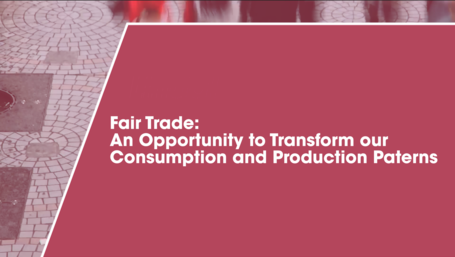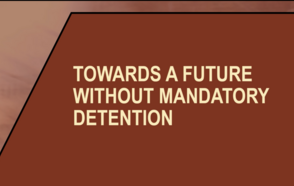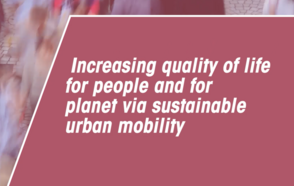
As part of the #CitiesAreListening experience, the experience on Cities and Fair Trade: alliances for economic equality, hosted by UCLG, FAMSI, and Fair Trade International, and with the support of the UCLG Local Economic Development Committee which took place on 3rd February, 2021, brought to the table the visions of building a world through proximity and solidarity, building on the #LiveLearningExperiences on local economic development.
The session aimed to engage in dialogue among leaders of local and regional governments, and representatives of civil society and its actors in order to share the challenges faced and discuss Fair Trade as a way to ensure local development capacity to provide alternatives focused on ecological transition and the fight against inequalities. In a moment in which the world discusses the recovery, we find ourselves in a foundational moment to discuss the need to transform our models of consumption and production, and will feed the development of the UCLG Pact for the Future, the new social contract aiming at reshaping our relationship with people, planet, and the government.
Emilia Saiz, UCLG Secretary General, Bernadia Irawati, UCLG ASPAC Secretary General -who moderated the session- and Darío Soto, CEO of Fair Trade International introduced the session by arguing for the need to build transformation from the local level, and transforming our economies into ones of proximity, that care for local producers and empower consumers.
“It will be unavoidable to transform how we understand production, consumption, and to think about the future of work. There is no one single type of economy, and fair trade will be critical to ensure informality is addressed in future discussions.” Emilia Saiz, UCLG Secretary General
“Our new strategy is to bring a transformative approach to improve the livelihoods of producers, to bring Fairtrade's impact for the world, and seek to empower consumers and turn them into responsible citizens. We cannot do this alone, only through combined work can we make the link.” Darío Soto, CEO of Fair Trade International
“It’s essential to ask ourselves how LRGs can play a role in fairtrade to bring equality to all people. In Asia, we are seeing struggles to connect consumers with producers, and it is often up to local governments to encourage producers to develop” Bernadia Irawati, UCLG ASPAC Secretary General
The ensuing panel discussions brought together representatives from civil society organizations, grassroots workers, and representatives from local and regional governments to debate the importance of collaboration from the local level to transform our patterns of production and transform the global trade dynamics.
Xiomara Paredes, CLAC Executive Director, addressed the challenges of coffee producers to access global markets, and praised Fairtrade policies and grants as a means to ensure a fair supply chain. Luis Robles, Quito City Councillor, and President of the Fairtrade Municipal Commission, brought to the table the measures of Quito to protect producers: including at least 10% of all local purchases being Fairtrade products, and developing cooperatives of consumers.
Roberto di Meglio, Local Economic Development Specialist from ILO, highlighted the loss of working hours in 2020, and how the current models of production and consumption are leading to more crises such as COVID-19. Fair trade, he argued, is part of the response to this, and it is essential to bring local governments’ innovation to ensure that fairtrade policies are the way forward.
Mareike Grytz, Responsible for Fair Trade Nuremberg Metropolitan Region, introduced the alliance of municipalities for the Nuremberg Metropolitan region. Through the principle of subsidiarity, voluntary commitment, and working on equal terms, the Pact for Sustainable procurement brought 70 cities together to ensure Fair Trade actions on the ground, buying products with over 8.000.000€ worth. David Comet, Alternative and solidarity economy initiative (IDEAS), highlighted the IDEAS campaign, which aimed at bringing together cities in Spain for Fair Trade, starting with Córdoba. Over 50 cities have joined in some capacity, bringing a total of 128 million euros in Fairtrade purchases.
Liviana Zorzi, UNDP Bangkok Regional Centre, made the linkages between the SDGs and Fair Trade, highlighting how UNDP promoted a fair business environment in ASEAN regions. The power of cities, she added, is also in public procurement: a strategic action to empower local producers and to identify high-level objectives. Álvaro Goicoechea, representing Fairtrade Iberia, called on the need to reinvent democracy to ensure the future of the coming generations, and listed the Fairtrade Challenges for 2030: Fair Salaries, generational change; and the climate crisis. He called to work in an integrated manner in order to transform consumption and production.
Wrapping up the session, Emilio Rabasco, FAMSI Programme Manager and Coordinator of the UCLG LESD Committee, highlighted how the post-pandemic can offer opportunities to amplify the work on local economic development with Africa and the Middle East, and how the World Forum on Local Economic Development, taking place in Córdoba, Argentina, in June 2021, is an opportunity to build on the work done.












